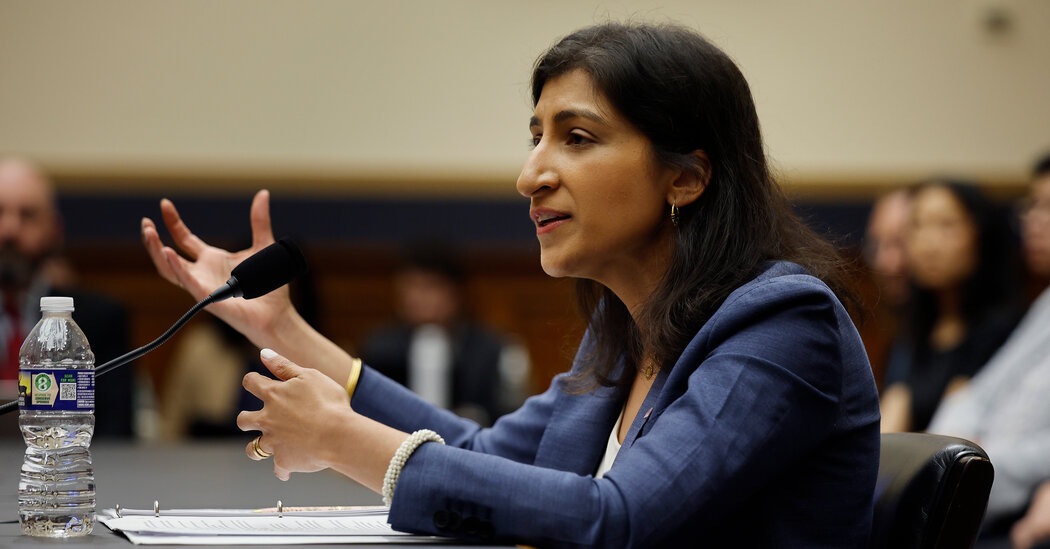In a report, the regulator sharply criticized pharmacy benefit managers, a reversal from its longstanding hands-off approach to policing the companies.
The Federal Trade Commission on Tuesday sharply criticized pharmacy benefit managers, saying in a scathing 71-page report that “these powerful middlemen may be profiting by inflating drug costs and squeezing Main Street pharmacies.”
The regulator’s study signals a significant ramping up of its scrutiny of benefit managers under the agency’s chair, Lina Khan. It represents a remarkable turnabout for an agency that has long taken a hands-off approach to policing these companies.
The F.T.C. has so far stopped short of bringing a lawsuit or other enforcement action against a benefit manager. But the industry fears that the report could lead to a formal investigation into its practices or to a lawsuit accusing benefit managers of anticompetitive conduct. The agency’s findings could also fuel legislative efforts in Congress and in the states to impose limits on the industry.
The three largest benefit managers — CVS Health’s Caremark, Cigna’s Express Scripts and UnitedHealth Group’s Optum Rx — collectively process roughly 80 percent of prescriptions in the United States. Hired by employers and government health insurance programs like Medicare, benefit managers are responsible for negotiating prices with drug makers, paying pharmacies and helping decide which drugs are available and at what cost to patients.
Benefit managers are supposed to save everyone money. But in recent years, the industry has grown more consolidated and has taken more control over how patients get their medicines, in a shift that critics say contributes to driving up drug costs.
